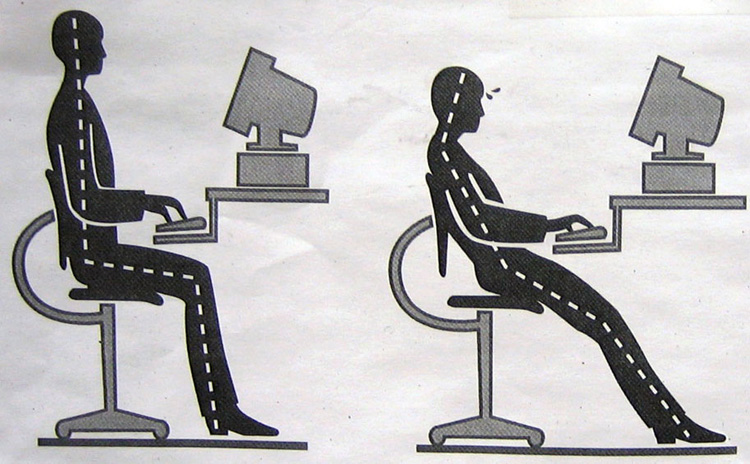
Many employers understand that they should have a vested interest in the health of their workers. By offering benefits like health insurance, sick days, and paid vacation, your boss ensures that you will continue to provide them with quality work at an efficient pace by helping you stay healthy. But the way your workstation is set up can also impact your physical and mental health; proper posture has a profound effect on your productivity and mood at work. For companies looking to improve workplace efficiency and overall office morale, ergonomic products are a great investment.
How Does Posture Affect My Work?
Employees waste an average of 39.2 minutes of their day fidgeting and moving around to get comfortable. Though that may not seem like a lot for a single day, over the course of a year, it can add up to over 18 days worth of lost work — a significant amount of time and money lost.
The way we stand, sit, and walk also has far more to do with mood than you may think. For example, when you sit up straight, you are far more likely to think positive thoughts. A study by researchers from Harvard and Columbia Universities showed that certain body postures can subconsciously affect our decision making as well. Specifically, powerful poses make us feel stronger and more in control. Posture even has the potential to change your hormone levels by increasing testosterone and lowering cortisol, which results in improved confidence and diminished feelings of stress.
How Can My Boss Help?
Instead of requiring you to adapt to uncomfortable environments, your boss can help complement the strengths and abilities of you and your co-workers by providing products that support proper ergonomics and posture. Here are some smart ergonomic investments that your boss can make to improve your posture, mood, and productivity at work:
- Standing Desks: Standing desks are currently growing in popularity due to their ability to improve posture and to counteract the typical sedentary lifestyle of the average office worker, which is linked to heart disease and diabetes.
- Ergonomic Chairs: The ideal office chair should have a high back to support your upper back, a slightly reclined backrest, and arm rests at a 90-degree angle with lumbar support placed slightly below the waist.
- Foot Rests: By elevating the feet, foot rests reduce lower back pressure and increase blood flow and circulation.
This is about more than physical health; proper posture can help unlock an employee’s full potential and bring positive energy into the workplace.
